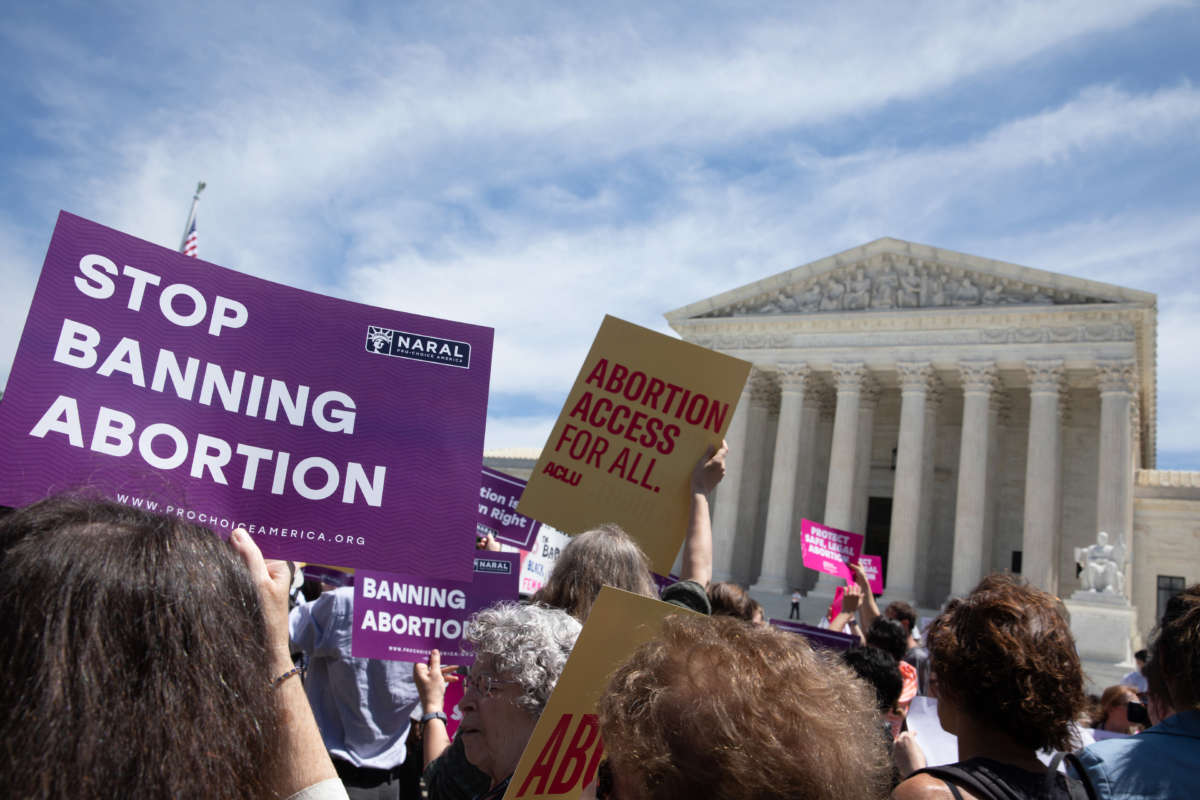The United States Supreme Court announced on Monday it would hear an appeal to a Mississippi court’s ruling that a state law had unduly restricted access to abortion services.
The Mississippi law, passed in 2018, made it illegal for a person to obtain an abortion after 15 weeks of pregnancy except in medical emergencies and other limited circumstances. A federal judge in the state ruled against its legality, and in late 2019 the Fifth U.S. Circuit Court of Appeals affirmed that the law was unconstitutional.
“In an unbroken line dating to Roe v. Wade, the Supreme Court’s abortion cases have established (and affirmed, and re-affirmed) a woman’s right to choose an abortion before viability,” Judge Patrick Higginbotham wrote in the opinion of the court at that time.
The Supreme Court’s decision to hear an appeal of that decision, however, has a number of abortion rights activists worried that it could lead to an overturning of the precedents set in Roe v. Wade, the 1973 decision that recognized abortion as a constitutionally protected right.
“The consequences of a Roe reversal would be devastating,” read a statement from Nancy Northup, president of the Center for Reproductive Rights. “Over 20 states would prohibit abortion outright. Eleven states, including Mississippi, currently have trigger bans on the books, which would instantaneously ban abortion if Roe is overturned.”
Others noted that the Supreme Court’s transformation during the Trump administration was purposeful, and the assurances from Republicans not to worry about abortion’s legality was deceitful.
“Never forget that McConnell and others mocked us and gaslit us through the [Justice Brett] Kavanaugh [confirmation] fight for claiming that legal abortion was in jeopardy. They knew. They lied,” wrote Ilyse Hogue, president of NARAL Pro-Choice America.
Hogue went on to warn that granting writs to cases like this one would itself set dangerous precedent, even if the Supreme Court didn’t rule against Roe this time.
“Whether the Court rules in favor of MS or not, they’re normalizing narrowing the aperture, placing more people who need abortion further from service,” Hogue said. “They have always understood, sometimes better than people who support Roe, that a right without access is not a right at all.”
The decision to hear an appeal — known as a writ of certiorari — requires at least four of the nine justices agreeing that a case deserves to be heard, as it “could have national significance, might harmonize conflicting decisions in the federal Circuit courts, and/or could have precedential value.”
By granting a writ of certiorari to the case, the Court is signaling that a sizable portion of justices felt compelled to at least consider that the lower court’s decision to strike the law down was errant. With a total of six members on the Court making up the conservative bloc of justices, many reproductive rights advocates fear that, now more than ever, that the right to abortion in the U.S. could be completely upended through a ruling on this case or others like it.
“There was clearly a battle behind the scenes between the justices over the decision to take this case,” noted Slate staff writer Mark Joseph Stern on Twitter. “It is an extraordinarily ominous sign for reproductive rights that the anti-abortion faction apparently won out.”
The Supreme Court will hear arguments in the case this fall. A final decision on the matter would likely be rendered several months later.
Join us in defending the truth before it’s too late
The future of independent journalism is uncertain, and the consequences of losing it are too grave to ignore. To ensure Truthout remains safe, strong, and free, we need to raise $43,000 in the next 6 days. Every dollar raised goes directly toward the costs of producing news you can trust.
Please give what you can — because by supporting us with a tax-deductible donation, you’re not just preserving a source of news, you’re helping to safeguard what’s left of our democracy.
